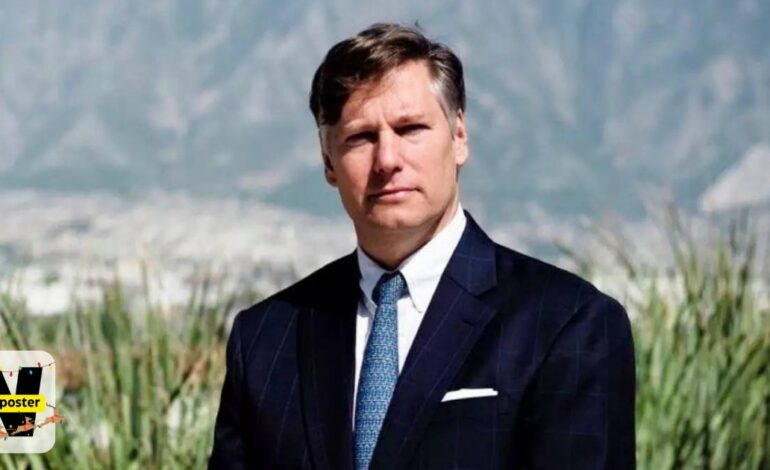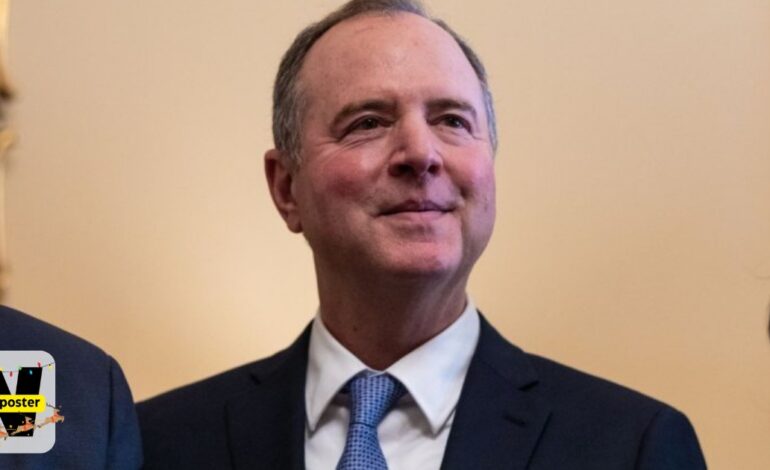
Trump Appoints Christopher Landau, Former U.S. Ambassador to Mexico, as Deputy Secretary of State in Strategic Move to Shape Foreign Policy, Strengthen U.S.-Mexico Relations, and Address Key Global Issues
Trump Appoints Christopher Landau, Former U.S. Ambassador to Mexico, as Deputy Secretary of State in Strategic Move to Shape Foreign Policy, Strengthen U.S.-Mexico Relations, and Address Key Global Issues
On a significant move reflecting his foreign policy priorities, Donald Trump has nominated Christopher Landau, a former U.S. ambassador to Mexico, to the position of Deputy Secretary of State. The announcement, made on Monday, marks an essential step in shaping the new administration’s approach to international relations, particularly focusing on U.S.-Mexico relations, illegal immigration, and critical global conflicts, such as the ongoing issues in Israel and Ukraine.
Landau’s nomination is not just a nod to his past diplomatic service but also to his deep understanding of Latin American affairs, which Trump emphasized as essential for advancing the United States’ interests in the region. If confirmed by the Senate, Landau will work closely with Marco Rubio, Trump’s pick for Secretary of State, to further Trump’s “America First Foreign Policy.” The president has been vocal about his desire to reshape U.S. foreign policy to better serve American interests, and Landau’s role is expected to be pivotal in this transformation.
Christopher Landau: A Proven Diplomat with Expertise in Latin American Affairs
Christopher Landau’s qualifications for the role of Deputy Secretary of State are rooted in his extensive career in law and diplomacy. Fluent in Spanish and holding a robust academic background in history and Latin American studies, Landau’s deep understanding of the political and cultural landscape of Latin America uniquely positions him to address key issues in the region. His diplomatic experience, especially as U.S. Ambassador to Mexico from 2019 to 2021, gave him invaluable insights into the challenges and opportunities in U.S.-Mexico relations.
Before entering the world of diplomacy, Landau distinguished himself in the legal field, having clerked for U.S. Supreme Court Justices Antonin Scalia and Clarence Thomas. His legal expertise, coupled with his fluency in Spanish, made him a standout choice for the position of ambassador to Mexico, where he was well-regarded for his skill in navigating complex diplomatic relationships.
In his tenure as ambassador, Landau worked on critical issues, including trade agreements like the United States-Mexico-Canada Agreement (USMCA), immigration reform, and combating drug trafficking. His efforts were instrumental in strengthening the bilateral ties between the two nations, an achievement that has been crucial for Trump’s broader foreign policy goals, particularly his stance on illegal immigration.
Trump’s nomination of Landau to Deputy Secretary of State signals his continued commitment to shaping foreign policy through trusted allies with proven track records in international diplomacy. Trump’s focus on Landau’s legal background and his diplomatic experience underscores the importance of bringing capable, experienced individuals into key roles, particularly in areas where U.S. national security and economic interests are at stake.
Strengthening U.S.-Mexico Relations and Addressing Immigration
A key area where Landau’s appointment could have substantial impact is in managing the ongoing issue of illegal immigration, a central topic during Trump’s presidency and his re-election campaign. With Landau at the helm as Deputy Secretary of State, the Trump administration is expected to continue its aggressive stance on immigration reform. Landau’s past work in Mexico will prove invaluable as the U.S. seeks to address the root causes of migration, enhance border security, and strengthen cooperation with Mexico on controlling illegal immigration.
During his time as ambassador, Landau played a significant role in reinforcing security measures along the U.S.-Mexico border. His efforts were aligned with Trump’s agenda of reducing illegal immigration, including bolstering law enforcement collaboration between the two countries. Landau was instrumental in facilitating discussions regarding the migrant caravans from Central America, offering solutions that balanced humanitarian concerns with national security priorities.
The ongoing challenges at the U.S.-Mexico border, including surges in migrant flows, will likely continue to be a priority for the new administration. By appointing Landau, Trump is signaling his commitment to addressing these challenges head-on, while also reinforcing the critical partnership between the U.S. and Mexico. Landau’s familiarity with the intricacies of U.S.-Mexico relations gives him the credibility to navigate sensitive negotiations with Mexico’s government, ensuring that the administration’s immigration goals remain a focal point of his diplomatic efforts.
Shaping U.S. Foreign Policy Under Marco Rubio
Marco Rubio, a longtime U.S. Senator from Florida, has been tapped by Trump to serve as Secretary of State. This appointment underscores the importance of Latin American and global geopolitical issues in Trump’s second-term foreign policy strategy. Rubio, known for his hawkish stance on both China and Venezuela, shares Trump’s “America First” perspective, focusing on strengthening alliances that serve U.S. interests and confronting adversaries like China and Russia.
Landau’s confirmation as Deputy Secretary of State would bolster Rubio’s team, providing the Secretary of State with a trusted ally in shaping U.S. policy in the Western Hemisphere. Both Rubio and Landau have demonstrated a clear commitment to advocating for U.S. interests, whether in trade, national security, or human rights. Together, they are expected to work closely on the Trump administration’s approach to countries in Latin America, ensuring that U.S. foreign policy in the region remains strong, focused, and aligned with the administration’s core values.
The ongoing challenges in countries like Venezuela, where the U.S. has taken a firm stance against the Maduro regime, will also be a focal point for Landau and Rubio. The Trump administration has historically supported opposition leaders in Venezuela and imposed economic sanctions aimed at weakening Maduro’s government. Landau’s legal and diplomatic experience will be invaluable in navigating the complex issues surrounding sanctions and international diplomacy in the region.
Global Conflicts and Trump’s “America First” Agenda
Beyond Latin America, Landau and Rubio are expected to focus on other critical areas of U.S. foreign policy, including ongoing conflicts in Israel and Ukraine. Trump’s “America First” approach has often meant reducing U.S. involvement in foreign conflicts while maintaining strong support for key allies such as Israel. In the Middle East, Trump’s administration brokered historic peace deals between Israel and several Arab nations through the Abraham Accords. This diplomatic achievement will likely continue to inform Trump’s foreign policy as Landau and Rubio navigate relations with Israel, the Palestinian territories, and broader regional conflicts.
Additionally, the war in Ukraine remains one of the defining challenges of contemporary geopolitics. While Trump has expressed opposition to deepening U.S. military involvement in Ukraine, he has also indicated support for providing aid to the country in its fight against Russia. How the Trump administration will balance these interests will be a critical issue for Landau and Rubio as they engage with NATO allies and determine the U.S. role in resolving the ongoing conflict.
The Appointment of Other Key Officials
In addition to Landau’s nomination, Trump has made several other key appointments, including Michael Needham as counselor to the State Department and Michael Anton as director of policy planning. Needham, who has been an influential figure in conservative circles, is expected to help guide Trump’s foreign policy vision, particularly on issues such as trade and national security. Anton, who has previously worked as a senior National Security Council official under Trump, will likely play a role in shaping broader strategic goals for U.S. foreign relations.
Together, these appointments reflect Trump’s intent to surround himself with a team that aligns with his worldview on international relations. The “America First” philosophy, which emphasizes the protection of U.S. interests and sovereignty, will continue to guide the administration’s policies in key areas such as immigration, trade, and military engagement.
Conclusion: Shaping the Future of U.S. Foreign Policy
Christopher Landau’s nomination to Deputy Secretary of State is a significant step in furthering Trump’s foreign policy agenda. With his vast experience in law, diplomacy, and U.S.-Mexico relations, Landau is well-positioned to handle the challenges that lie ahead. From addressing immigration reform to managing U.S. relations with Latin American countries, Landau’s role will be crucial in shaping the trajectory of U.S. foreign policy.
As Trump prepares for his second term in office, these appointments serve as a reminder of the administration’s commitment to putting America first and maintaining strong, strategic partnerships abroad. With Landau, Rubio, and other key officials at the helm, Trump is poised to continue his efforts to reshape the global political landscape in ways that prioritize U.S. interests above all else.



